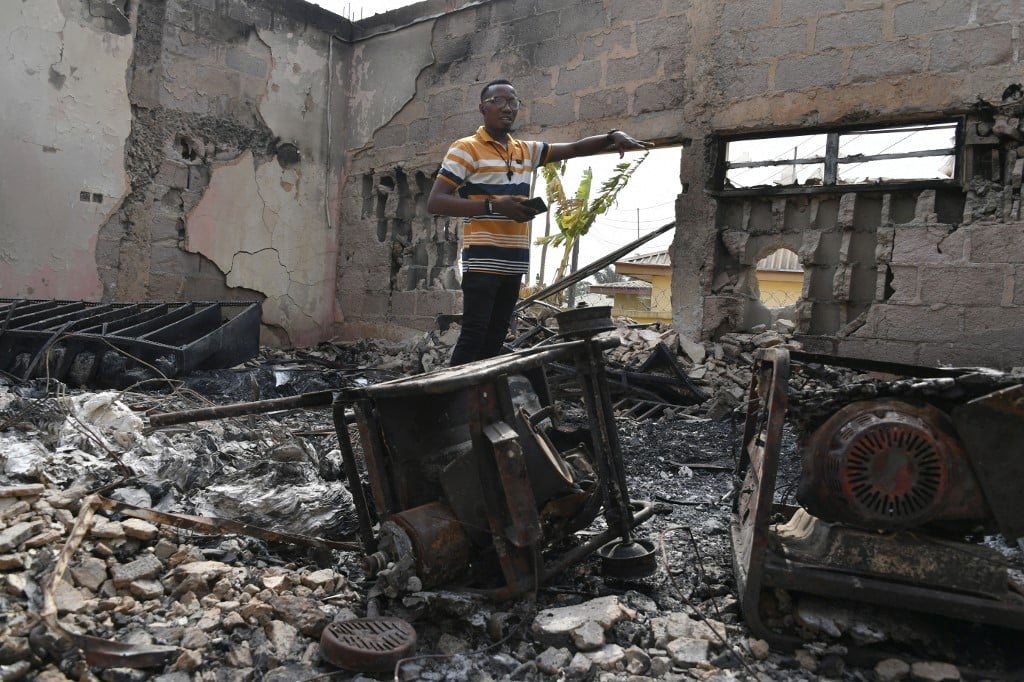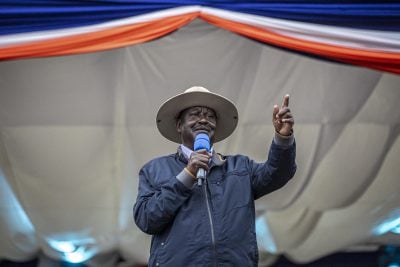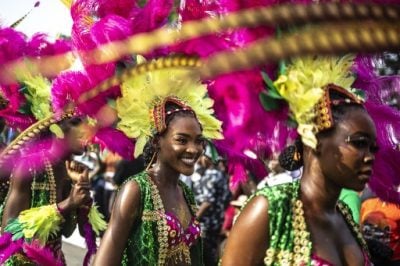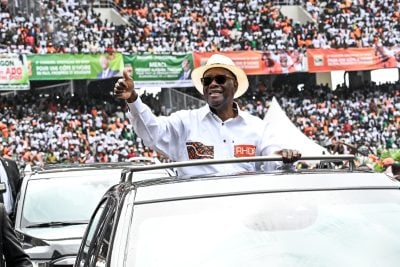Nigeria’s ruling party won the majority of states in the weekend governorship elections.
The All Progressives Congress (APC) party won 15 states, while the People’s Democratic Party (PDP) won seven states, official figures showed on Monday.
The Labour Party, whose candidate, Peter Obi, came third in February’s presidential contest, won one state. Obi is now staging a legal challenge to the presidential result (see below).
However, the contest, where voters chose governors in 28 of the country’s 36 states, was marred by allegations of violence and intimidation.
Vote-buying and thuggery
The gubernatorial race concluded Nigeria’s 2023 election cycle, which kicked off with the disputed presidential election in February.
Local observer group YIAGA Africa said it found several instances during the gubernatorial contest in which voters were intimidated and prevented from voting unless they agreed to cast their ballots for certain political parties.
The EU Election Observation Mission to the 2023 elections said their observers personally witnessed vote-buying, while thuggery and acts of violence in the run-up to the elections “led to a fearful atmosphere” in some states.
“Obstruction and organised violence limited the free expression of the will of the voters, despite efforts by civil society to promote democratic standards,” said the team in a statement issued on 20 March.
In Nigeria’s northern Kano state, police arrested a local politician and 164 others for attempting to burn down the local Independent National Electoral Commission (INEC) office.

Voter apathy in Lagos
The incumbent governor, Babajide Sanwo-Olu, won a landslide re-election, with 736,000 votes in 95% of districts in Lagos state compared to just 292,000 for his closest rival, the Labour Party’s Gbadebo Rhodes-Vivour, INEC revealed on Sunday.
In Africa’s largest megacity, Lagos, only a fraction of the 7m registered voters cast their ballots in a city of 20m.
Violence, intimidation and allegations of fraud and vote buying were blamed for the lowest turnout in history of Lagos’ gubernatorial elections.
Voter apathy in the presidential and governorship elections was fuelled by Nigeria’s dismal socio-economic situation, an ongoing fuel crisis, and vote buying spurred by naira scarcity, YIAGA Africa’s Sam Ogwuche told local TV station Arise News.
“These issues on the ground before the election, largely contributed to voter apathy and even election fraud. Because when you are battling for survival, good governance and integrity of elections become secondary,” he said.
A central bank policy to revamp the local currency to help curb vote buying before the presidential election backfired, as citizens became desperate for cash and vulnerable to manipulation, he claimed.
“Some people have been of the view that it was actually meant to curb vote buying,” he said. “But as we found out, it became a tool for vote buying at the end of the day. Because if you look at the way the elections went, somebody who would ordinarily not have been moved by N10,000 [$22] would have been moved by even N1,000 or N2,000 because of the scarcity of the naira.
“Even in some places, we observed party agents were collecting the bank details of voters and they were compromising the entire process.”
“Although the winner of the Lagos election has been announced, it’s crucial to bear in mind that the electoral process was marred by violence, intimidation, and voter suppression, which unfortunately were common occurrences in many parts of the country,” a coalition of Nigerian youth advocacy groups promoting good governance, Enough is Enough, said.
Other Lagosians unleashed a wave of outcry on Twitter over voter intimidation.
“What is happening in Lagos, Nigeria and the violence being used to disenfranchise and stop citizens from voting is a new low on the continent,” said Kathleen Ndongmo, a digital content manager at Viamo.
Opposition response to presidential result
Meanwhile, defeated Labour Party candidate, Peter Obi, alongside other opposition parties, is pressing ahead with a legal challenge to the outcome of the presidential election.
On Monday, the Labour Party’s chief spokesperson, Dr Yunusa Tanko, said that Obi has officially filed his petition to the presidential elections tribunal in Abuja.
“The process of reclaiming the people’s mandate has started,” he said.
Want to continue reading? Subscribe today.
You've read all your free articles for this month! Subscribe now to enjoy full access to our content.
Digital Monthly
£8.00 / month
Receive full unlimited access to our articles, opinions, podcasts and more.
Digital Yearly
£70.00 / year
Our best value offer - save £26 and gain access to all of our digital content for an entire year!
 Sign in with Google
Sign in with Google 



